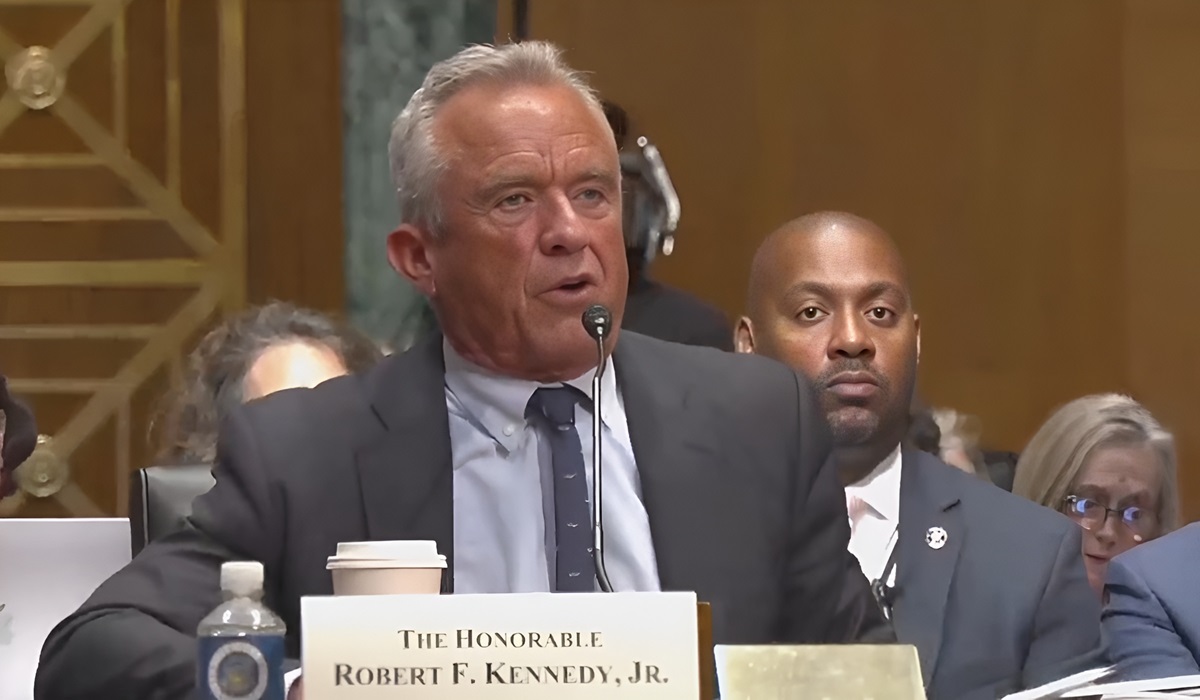Kennedy Strikes Back: A Masterclass in Shutting Down Senate Grandstanding
- Kingston Bailey
- Trending News
- September 5, 2025

In the United States, Senate hearings are often billed as the pinnacle of accountability, the forum where the powerful are questioned by the people’s representatives. On paper, they are meant to embody oversight, truth-seeking, and the holding of individuals or institutions to account. Yet in practice, these hearings have become little more than political theater, where hostility, interruption, and grandstanding often overshadow substance. The Canadian equivalent, though generally more subdued and less combative, shares some of these traits, though its participants are more often asked voluntarily to testify rather than compelled. Subpoenas do occur, but in Canada, they are far less frequent, and the cultural approach is somewhat less adversarial. Still, the broader issue remains: these forums are less about facts and accountability than about partisan spectacle.
One need only watch the exchanges between Democrats and Republicans to see how the proceedings devolve into open hostility. If a Democrat is questioning a Republican witness, or vice versa, the tone becomes combative before a single question is asked. The so-called questions are rarely questions at all, but rather accusations disguised as inquiries. They are usually phrased in a yes-or-no format, with the clear intent not of eliciting thoughtful responses but of cornering the witness, scoring political points, or worse, humiliating the individual for the cameras. These panels, whether in Congress or the Senate, often serve as little more than stages for politicians to lambast, eviscerate, and insult. Character assassination is not an unfortunate byproduct—it is often the main event.
Sometimes, this is deserved. Corporate executives who prioritize profit over safety, who knowingly harm consumers, or who engage in unscrupulous practices warrant tough questioning. Public anger demands accountability, and elected officials are within their rights to grill such figures. But more often than not, the spectacle veers away from the search for truth. Partisan battles take center stage, and the hearings become a contest of who can most effectively shame or berate the person sitting at the witness table. In these moments, what should be a fact-based inquiry dissolves into a shouting match.
This imbalance has long been accepted as the norm. The witness is expected to sit still, answer meekly, and accept the barrage of interruptions without protest. Senators and Representatives routinely cut off answers, talk over witnesses, and reduce serious discussions to one-liners and gimmicks. The unspoken rule is clear: the lawmakers hold the gavel, the mic, and the power, so the witness must simply endure. Anyone who dares to push back risks being chastised, threatened with contempt, or branded as disrespectful to the institution.
But in a recent exchange, Health Secretary Robert Kennedy broke from this script. For the first time in memory, a witness gave as good as he got. Faced with constant interruptions, loaded questions, and attempts to trap him into false admissions, Kennedy refused to be cowed. He called out the behavior for what it was. He told panelists to their faces that they were being stupid, delusional, and uninformed. He did not shrink from confrontation, nor did he allow the spectacle to proceed unchallenged. Instead, he flipped the script, exposing the farce of the hearing itself.
The Congressional panel, expecting compliance, was suddenly confronted with resistance. Their usual tactics—interruptions, overtalking, dismissive remarks—fell flat because Kennedy did not yield. He matched their tone and their aggression, but he also did something more: he brought facts to the table. Where they had soundbites, he had evidence. Where they sought to embarrass, he exposed their contradictions. Observers described it as a masterclass in responding under pressure. Rather than descending into chaos, Kennedy’s defiance revealed just how hollow and self-serving the performance of the panelists truly was.
It is worth noting that Kennedy’s sharpness was not unprovoked. He was denied the courtesy of answering questions in full. He was ridiculed for his views rather than debated on their merits. He was subjected to constant interruptions. In one telling moment, he pointed out that Senator Elizabeth Warren had received nearly one million dollars in contributions from pharmaceutical companies—a damning reminder of the interests at play. If lawmakers are so heavily financed by the industries they are supposed to regulate, is it any wonder that they attack dissenting voices with such ferocity?
The hypocrisy was laid bare. Senators who claim to champion public welfare were more interested in defending their benefactors than in having a genuine dialogue. Kennedy called it what it was: grandstanding. These hearings, he argued, are not about the public’s right to know. They are about political survival. Each insult hurled at a witness, each moment of “toughness” displayed for the cameras, is aimed at shoring up support among voters back home. It is performance art, not governance.
And he was right. What Americans witnessed was not oversight but a spectacle. The panelists were less concerned with answers than with appearances. They sought not the truth but the soundbite that would play well on cable news or go viral online. Kennedy, by refusing to submit, exposed the hollowness of this ritual. His refusal to be a punching bag highlighted the lack of decorum, the lack of seriousness, and the lack of honesty in these proceedings.
This dynamic is not limited to Washington. In Ottawa, parliamentary committees have their own theatrics. Though often less vicious, Canadian panels too are plagued by partisanship. Opposition members may seize the moment to embarrass a minister, while governing members will circle the wagons to protect their own. Witnesses, whether from industry, advocacy groups, or government agencies, are often treated as pawns in a larger partisan battle. Subpoenas are less common in Canada, and the tone can be more civil, but the core problem remains: accountability takes a back seat to political gamesmanship.
The deeper tragedy is that these hearings could serve a vital function. Properly conducted, they could shed light on complex issues, provide transparency, and force powerful figures to answer directly to the people. They could be moments of learning, of collective problem-solving, of serious dialogue. Instead, they devolve into shouting contests where reason is drowned out by volume.
Kennedy’s defiance should not be seen as disrespect for the institution. On the contrary, it was an act of respect for the truth. By standing firm, by refusing to be silenced or caricatured, he demonstrated what real accountability looks like. If lawmakers can shout, interrupt, and insult without consequence, then it is only fair that witnesses defend themselves in kind. Otherwise, the hearings remain a one-sided charade.
The image of senators yelling endlessly, the sound of voices talking over one another, the endless interruptions—these are not signs of democracy at work. They are signs of dysfunction. If those entrusted with oversight cannot model civil discourse, how can they expect the public to respect their authority? If the process is reduced to a competition of who can score the nastiest jab, then oversight has failed, and democracy itself is weakened.
Kennedy’s appearance was a reminder that honesty can cut through noise, that facts can stand up to insults, and that courage can deflate the pomp of political theater. For once, the panelists were not the unquestioned masters of the spectacle. They were forced to face the absurdity of their own conduct, and in doing so, they looked exactly as Kennedy described them: foolish, delusional, and uninformed.
In the end, the hearings revealed more about the lawmakers than about the witness. They revealed the extent to which politics has overtaken governance, the extent to which performance has replaced principle. Kennedy may have been in the hot seat, but it was the panelists who were truly exposed. If there is any lesson to be drawn, it is that accountability should be a two-way street. Until hearings return to the business of facts and respect, they will remain what Kennedy so effectively showed them to be: a disgusting farce.








